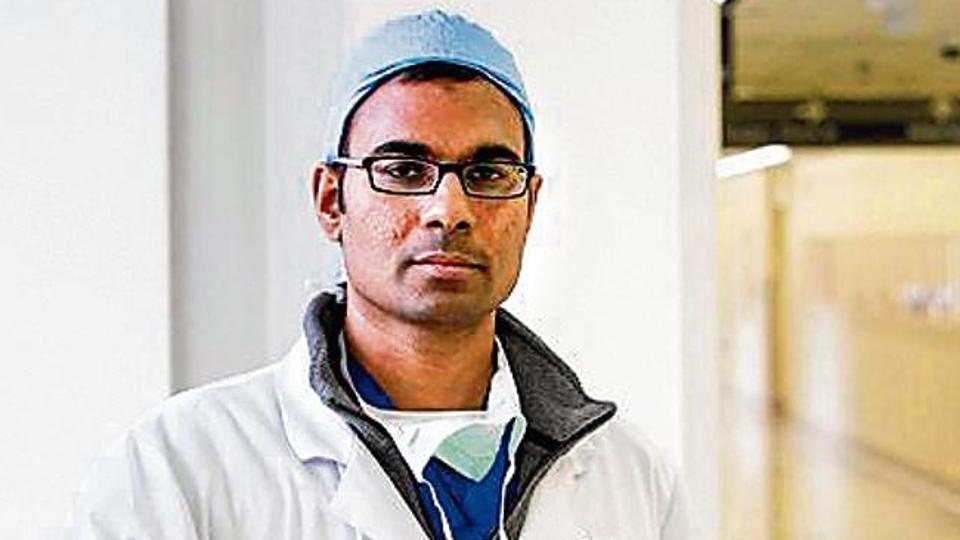
Doctor turned terminal patient reflects on career he couldn’t have and more
When Paul Kalanithi was diagnosed with stage IV lung cancer at the age of 36 he was just 15 months away from finishing training as a neurosurgeon. The cancer was inoperable and Kalanithi was facing a certain death in the near future.
To chronicle his views on life and also the changes that struck him after the disease, he wrote the memoir, ‘When Breath Becomes Air.’ Before he could finish the memoir, he passed away in March 2015. But when the book finally hit the stands, it stayed in the bestseller list for about an year.

The book includes poignant passages like this: “I had earned the respect of my seniors, won prestigious national awards, and was fielding job offers from several major universities… I had reached the mountaintop; I could see the Promised Land.”
Though it looked to the young doctor as though he was standing at the cusp of possibilities, it didn’t take long for his role to change-from that of a doctor to a terminal patient.
Living life to the fullest, as taught by death
More than anything, the memoir chronicles what he experienced when he was faced with death and how the prospect taught him to live life to the fullest- something that prompted him to have a child even though he knew that he wouldn’t be around to see her growing up.
In the memoir, he writes, As a doctor, I knew not to declare ‘Cancer is a battle I’m going to win!’ or ask, ‘Why me?’ (Answer: why NOT me?).”
Kalanithi brings to the book all his academic acumen which goes beyond the medical- he had earned his degrees in human biology, English Literature, history and philosophy of science and medicine before graduating from theYale School of Medicine.
In the book, you will find exquisite passages that paint a picture of ironic detachment from missing out on a medical career that he dreamed of. But the most affecting are perhaps his reflections on his personal life, of his transformation as a human being.
Like these words: “I began to realize that coming in such close contact with my own mortality had changed both nothing and everything. Before my cancer was diagnosed, I knew that someday I would die, but I didn’t know when. After the diagnosis, I knew that someday I would die, but I didn’t know when. But now I knew it acutely. The problem wasn’t really a scientific one. The fact of death is unsettling. Yet there is no other way to live.”
And when his father tells him that he would be able to beat cancer, this is how he reflects: “How often had I heard a patient’s family member make similar declarations? I never knew what to say to them then, and I didn’t know what to say to my father now.”
From doctor to patient
The book has a wide narrative arc-from being a student excited about the career as a neurosurgeon that lies ahead of him to becoming a terminal patient. In between are accounts of a husband in a marriage as he struggles to find the right work-life balance. And, of course there are the musings of a father who knows that the hardest thing would be saying goodbye to his little girl.
And his message to his daughter is gentle as it is eloquent: “That message is simple: When you come to one of the many moments in life when you must give an account of yourself, provide a ledger of what you have been, and done, and meant to the world, do not, I pray, discount that you filled a dying man’s days with a sated joy, a joy unknown to me in all my prior years, a joy that does not hunger for more and more, but rests, satisfied. In this time, right now, that is an enormous thing.”
Image credits: hindustantimes.com